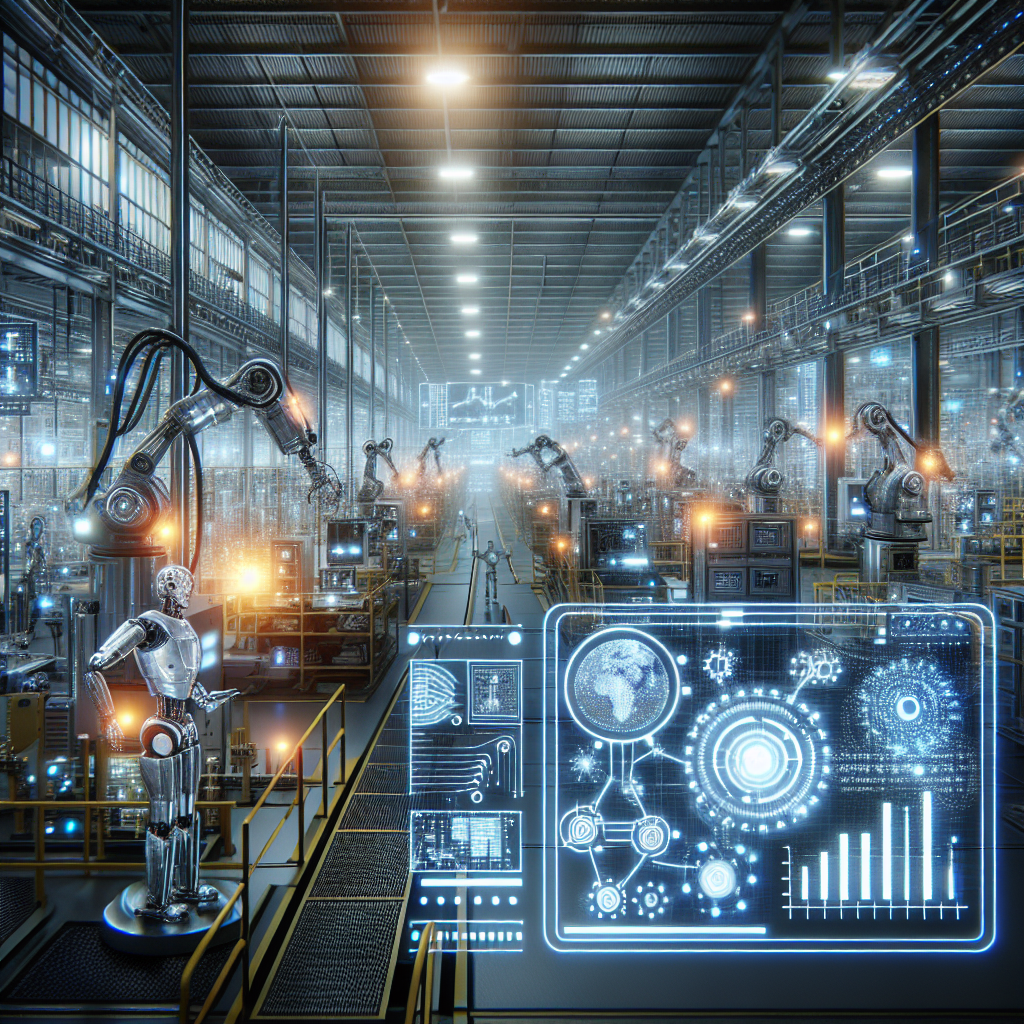The Benefits of AI-Powered Decision Making in Manufacturing
In today’s fast-paced and highly competitive manufacturing industry, companies are constantly looking for ways to improve efficiency, reduce costs, and increase productivity. One of the most promising technologies that is revolutionizing the way manufacturers make decisions is artificial intelligence (AI). By harnessing the power of AI, manufacturers can make more informed, data-driven decisions that lead to higher quality products, increased production output, and reduced downtime. In this article, we will explore the benefits of AI-powered decision making in manufacturing and how it is transforming the industry.
1. Improved Efficiency
One of the key benefits of AI-powered decision making in manufacturing is improved efficiency. AI algorithms can analyze vast amounts of data in real-time and identify patterns and trends that humans may not be able to detect. By leveraging AI, manufacturers can optimize their production processes, identify bottlenecks, and make adjustments to improve efficiency. For example, AI can be used to predict equipment failures before they occur, allowing manufacturers to schedule maintenance in advance and prevent costly downtime.
2. Cost Reduction
Another significant benefit of AI-powered decision making in manufacturing is cost reduction. By using AI to optimize production processes, manufacturers can reduce waste, minimize energy consumption, and increase overall operational efficiency. AI can also help manufacturers identify opportunities to streamline their supply chain and reduce inventory costs. By making data-driven decisions, manufacturers can cut costs and improve their bottom line.
3. Increased Product Quality
AI-powered decision making can also lead to increased product quality. By analyzing data from sensors and other sources, AI can detect defects and anomalies in real-time, allowing manufacturers to address quality issues before they impact the final product. AI can also be used to identify patterns that lead to defects and make process adjustments to improve product quality. By leveraging AI, manufacturers can ensure that their products meet the highest standards of quality and reliability.
4. Enhanced Production Output
AI-powered decision making can also help manufacturers increase their production output. By optimizing production schedules, predicting equipment failures, and identifying opportunities for process improvements, AI can help manufacturers maximize their production capacity and meet customer demand. AI can also be used to automate repetitive tasks, freeing up workers to focus on more value-added activities. By increasing production output, manufacturers can improve their competitiveness and drive growth.
5. Predictive Maintenance
One of the most valuable applications of AI in manufacturing is predictive maintenance. By analyzing data from sensors and other sources, AI can predict when equipment is likely to fail and recommend maintenance actions to prevent downtime. Predictive maintenance can help manufacturers reduce unplanned downtime, extend the life of their equipment, and improve overall equipment effectiveness. By implementing predictive maintenance strategies, manufacturers can save time and money while increasing the reliability of their production processes.
6. Improved Decision Making
AI-powered decision making can also improve overall decision-making processes in manufacturing. By analyzing data from various sources, AI can provide insights and recommendations that help manufacturers make more informed decisions. Whether it’s optimizing production schedules, identifying quality issues, or streamlining the supply chain, AI can help manufacturers make better decisions that drive business growth and success. By leveraging AI, manufacturers can gain a competitive edge in the market and stay ahead of the competition.
7. Scalability and Flexibility
AI-powered decision making offers manufacturers scalability and flexibility. AI algorithms can be easily scaled to handle large volumes of data and adapt to changing business needs. Whether it’s expanding production capacity, entering new markets, or launching new products, AI can help manufacturers make strategic decisions that support growth and expansion. By leveraging AI, manufacturers can easily adapt to changing market conditions and seize new opportunities as they arise.
FAQs
Q: How can manufacturers get started with AI-powered decision making?
A: Manufacturers can start by identifying areas where AI can have the most impact, such as predictive maintenance, quality control, or production optimization. They can then invest in AI technologies, such as machine learning algorithms and data analytics tools, to start analyzing data and making informed decisions.
Q: What are the challenges of implementing AI in manufacturing?
A: One of the challenges of implementing AI in manufacturing is the lack of skilled talent. Manufacturers may need to hire data scientists, machine learning engineers, and other AI experts to implement and manage AI technologies. Another challenge is data quality and availability, as AI algorithms require high-quality data to make accurate predictions and recommendations.
Q: How can AI help manufacturers improve their supply chain?
A: AI can help manufacturers optimize their supply chain by analyzing data from various sources, such as sensors, RFID tags, and inventory systems. AI can identify bottlenecks, predict demand, and optimize inventory levels to improve efficiency and reduce costs. By leveraging AI, manufacturers can streamline their supply chain and improve overall operational performance.
Q: What are some examples of successful AI implementations in manufacturing?
A: Some examples of successful AI implementations in manufacturing include predictive maintenance systems that reduce downtime, quality control systems that detect defects in real-time, and production optimization systems that increase output and efficiency. Companies like Siemens, General Electric, and IBM are using AI to transform their manufacturing operations and drive business growth.
In conclusion, AI-powered decision making is revolutionizing the manufacturing industry by improving efficiency, reducing costs, increasing product quality, and driving growth. By leveraging the power of AI, manufacturers can make more informed, data-driven decisions that lead to better outcomes and competitive advantage. As AI technologies continue to evolve, manufacturers will have even more opportunities to harness the power of AI and transform their operations.

